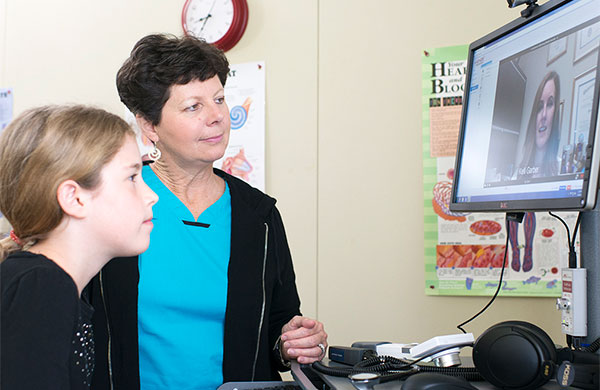
The Centers for Medicare and Medicaid Services (CMS) and Department for Health and Human Services (HHS) implemented changes that would make it easier for hospitals to stand up telehealth programs in response to the Covid-19 pandemic. As healthcare workers face an influx of patients and limited protective equipment, telehealth will play an important role in helping triage and treat patients.
After President Donald Trump declared a national emergency over the new virus on Friday, CMS shared additional guidance on what it means for health systems. Hospitals will have more flexibility to reserve beds for the sickest patients, and providers will be able to work across state lines, making telehealth programs easier to implement in many states.

The Power of One: Redefining Healthcare with an AI-Driven Unified Platform
In a landscape where complexity has long been the norm, the power of one lies not just in unification, but in intelligence and automation.
CMS Administrator Seema Verma said the changes would take effect retroactively, dating back to March 1.
“Our actions allow hospitals to reserve beds for the most severely ill patients by discharging those who are less severely ill to skilled nursing facilities; they bolster hospital capacity in rural areas by removing restrictions on critical access hospitals; and – crucially – they allow healthcare professionals to provide care across state lines more easily,” she said in a prepared statement. “I’ll also flag the expanded use of telehealth, allowing people to communicate with their providers from home and limit the spread of the virus. And this is just the beginning of our work on telehealth – we will have more flexibility coming in the coming days.”
HHS Secretary Alex Azar waived requirements on Friday that out-of-state providers be licensed in the state where they are providing services, opening the door to telehealth services that cross state lines. The changes apply to both Medicare and Medicaid programs.
States will also be able to seek Medicaid waivers to streamline enrollment and licensing requirements for providers.

As Healthcare and Biopharma Companies Embrace AI, Insurance Underwriters See Risks and Opportunities
In an interview, Munich Re Specialty Senior Vice President Jim Craig talked about the risk that accompanies innovation and the important role that insurers play.
These changes are on top of flexibilities passed earlier this month by Congress as part of an $8.3 billion emergency spending bill. Azar enacted the changes on Friday that would lift Medicare restrictions to telehealth in rural areas, allowing older patients to receive telehealth visits in urban areas and for in-home care.
Photo credit: Medical University of South Carolina






